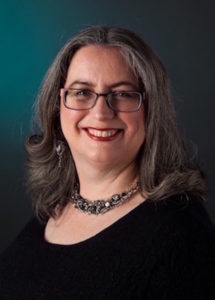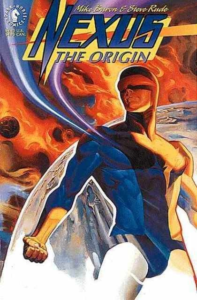When I first began working on a story about women who turned into werewolves as they entered menopause way back in 2009 or so, there was not a whole lot of representation of middle-aged and older women to be found in science fiction, fantasy, or horror. I mean, there were the evil middle-aged queens with talking mirrors, out to poison their younger, prettier rivals and the ancient witches who popped up to do terrible things or sometimes, provide directions, as the case may be. But, with rare exceptions, they were never protagonists, and they were seldom more than cardboard embodiments of evil or just plain window dressing.
Around 2010, that started to change. A bunch of other things happened around then too, including a huge growth in ebook publishing by indie authors and indie publishers which brought in a lot of voices that were not previously being heard from in more mainstream science fiction, fantasy, or horror. Along with that came writers willing to take risks, to tell new stories, to tackle things like representation that had been pretty sparse up until then. Those writers included women who were middle-aged and beyond looking to see themselves and their stories in the pages of the genres they loved.
 Amongst those writers was yours truly. As I entered middle age myself, I wanted to see more protagonists that were dealing with the same issues around aging that I was dealing with and still having adventures along the way. Entering middle age often brings with it some big physical and psychological changes, as well as the potential for having one’s traditional social roles (perceived desirability and childbearing, for example) reduced. Menopause is either ignored or treated like a medical condition, and middle-aged women who are still interested in sex are often treated as a punchline to a joke. Quite a bit of this is culturally specific to Western culture as we practice it in the U.S., but that also makes it pretty pervasive.
Amongst those writers was yours truly. As I entered middle age myself, I wanted to see more protagonists that were dealing with the same issues around aging that I was dealing with and still having adventures along the way. Entering middle age often brings with it some big physical and psychological changes, as well as the potential for having one’s traditional social roles (perceived desirability and childbearing, for example) reduced. Menopause is either ignored or treated like a medical condition, and middle-aged women who are still interested in sex are often treated as a punchline to a joke. Quite a bit of this is culturally specific to Western culture as we practice it in the U.S., but that also makes it pretty pervasive.
Inspired by a write-up that I found on a medical site for “symptoms” of menopause (“Unexpected hair growth! Mood swings! Receding gums which make your teeth look longer!”) I embarked on what was originally a novella about a woman who discovers that when she turns fifty, she also turns into a werewolf. She also develops a crush on her next-door neighbor and finds a whole new community of local werewolves, all middle-aged and elderly women, and confronts the people out to destroy her newfound family. After getting a lot of positive feedback for the idea, the novella was followed by the first novel, Silver Moon, and now, the second one, Blood Moon. Some of the themes and issues that I tackle in the Wolves of Wolf’s Point series include coming out at midlife, the physical and psychological experiences of menopause, a magical system that values older women and ways to combat the isolation that can impact women as they age. Also: werewolves, because they’re cool.
Silver Moon originally came out in 2012 (it was reissued by Queen of Swords Press in 2017), joining a small list of novels and stories with female protagonists forty and older in sf and f. These included Paladin of Souls by Lois McMaster Bujold (2003), a fantasy that sends a middle-aged noblewoman on a quest, and Remnant Population (2003) by Elizabeth Moon, which is a first contact novel featuring an eighty-year-old human colonist as the protagonist. There were also Nancy Springer’s middle-aged ladies of the fantastic featured in such titles as Fair Peril (1996), Larque on the Wing (1994), and Plumage (2000). YÅ«ya SatÅ’s Dendera (2009) is about a group of elderly Japanese women banding together to fight a supernatural bear, and most popular of all, Terry Pratchett’s Discworld witches, which were first featured in Equal Rites (1987) and Wyrd Sisters (1988).
 Armed with the knowledge that there might be more stories out there, I went looking. I started a bibliography of the stories I found featuring science fiction, fantasy, and horror tales with female protagonists over 40 where I listed everything I knew about (10 books and/or stories) and then I asked for suggestions. And it turned out that I wasn’t the only one looking for more older women in speculative fiction. Suggestions trickled in and I checked them out and added them if they seemed like a good fit. The two biggest reasons for not adding a title were unspecified age (character felt “older”) and a misinterpretation of what a “protagonist” was. Middle-aged and older women apparently occupy an outsized role on the fictional page, such that even a walk-on and a couple of lines is as good as being a major player for some readers.
Armed with the knowledge that there might be more stories out there, I went looking. I started a bibliography of the stories I found featuring science fiction, fantasy, and horror tales with female protagonists over 40 where I listed everything I knew about (10 books and/or stories) and then I asked for suggestions. And it turned out that I wasn’t the only one looking for more older women in speculative fiction. Suggestions trickled in and I checked them out and added them if they seemed like a good fit. The two biggest reasons for not adding a title were unspecified age (character felt “older”) and a misinterpretation of what a “protagonist” was. Middle-aged and older women apparently occupy an outsized role on the fictional page, such that even a walk-on and a couple of lines is as good as being a major player for some readers.
After the initial growth spurt, there were new and rediscovered works popping up every time I asked for suggestions. A nice fan I met at Helsinki Worldcon offered to create a Goodreads list, and things took off from there. The list has taken on a life of its own as people add books and readers discover it.
But apart from the obvious interest in the topic, there still remains the question of how broad and deep the representation these books and stories provide. There are, for example, still not many characters who are women of color and even fewer who are written by writers of color. There are some queer women, but not many. A list of trans women who are also elders in spec fic and protagonists, while longer than it would have been a couple of years ago, is still very short. Representation of aged characters is also full of magical and technological “cures” and other miracles.
There have also been some challenges making readers aware that the books and stories that do exist are out there. I, and now we, have been adding to and publicizing these lists for years and yet every six months or so, I encounter a post or commentary somewhere online to the effect that there are almost no older women featured as protagonists in sf and f. This is invariably followed by people suggesting the same five or six books, many of whom are amazed that there are many more stories than they thought out there.
As writers in the field age, their characters often age with them (sometimes subconsciously), so I think that we will see more of these stories in the future. Add to that the works that we have not yet discovered and included, particularly those from outside the U.S., perhaps not originally written in English, and there is fertile ground for exploring older women as central characters in speculative fiction.
 Bio: Catherine Lundoff is the publisher at Queen of Swords Press, a Minneapolis-based small press focused on fiction from out of this world. Queen of Swords publishes work by A.J. Fitzwater, Alex Acks, Catherine’s own work and that of other authors. Catherine is also an award-winning writer and editor who works in IT and lives with her wife and their kitty overlords. Her books include the Wolves of Wolf’s Point series, Silver Moon and Blood Moon, Out of This World: Queer Speculative Fiction Stories and Unfinished Business: Tales of the Dark Fantastic and as editor, Scourge of the Seas of Time (and Space). She is the author of over 100 published short stories and essays which have appeared in such venues as Fireside Magazine, Nightmare Magazine, the SFWA Blog, Sherlock Holmes and the Occult Detectives, American Monsters Part 2 and World of Darkness anthologies Haunting Shadows, The Cainite Conspiracies and Ghosthunters. She teaches writing classes at the Rambo Academy and Springboard for the Arts.
Bio: Catherine Lundoff is the publisher at Queen of Swords Press, a Minneapolis-based small press focused on fiction from out of this world. Queen of Swords publishes work by A.J. Fitzwater, Alex Acks, Catherine’s own work and that of other authors. Catherine is also an award-winning writer and editor who works in IT and lives with her wife and their kitty overlords. Her books include the Wolves of Wolf’s Point series, Silver Moon and Blood Moon, Out of This World: Queer Speculative Fiction Stories and Unfinished Business: Tales of the Dark Fantastic and as editor, Scourge of the Seas of Time (and Space). She is the author of over 100 published short stories and essays which have appeared in such venues as Fireside Magazine, Nightmare Magazine, the SFWA Blog, Sherlock Holmes and the Occult Detectives, American Monsters Part 2 and World of Darkness anthologies Haunting Shadows, The Cainite Conspiracies and Ghosthunters. She teaches writing classes at the Rambo Academy and Springboard for the Arts.
Websites: www.catherinelundoff.net and www.queenofswordspress.com
If you’re an author or other fantasy and science fiction creative, and want to do a guest blog post, please check out the guest blog post guidelines. Or if you’re looking for community from other F&SF writers, sign up for the Rambo Academy for Wayward Writers Critclub!








 Whenever I ask the question “How shall I live?” I always look to literature for the answer. But this time the answer came in a dream.
Whenever I ask the question “How shall I live?” I always look to literature for the answer. But this time the answer came in a dream.
